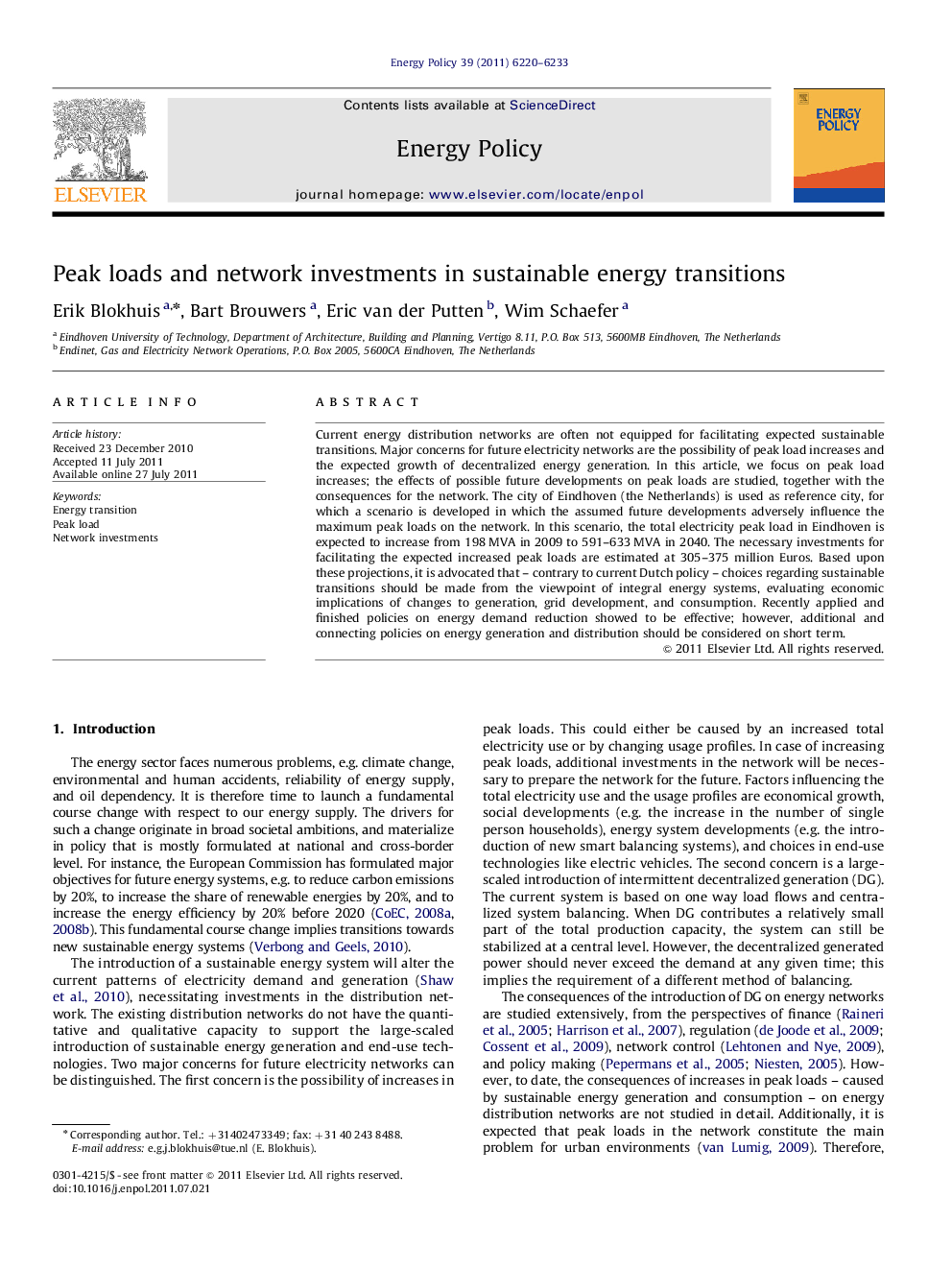| Article ID | Journal | Published Year | Pages | File Type |
|---|---|---|---|---|
| 993062 | Energy Policy | 2011 | 14 Pages |
Current energy distribution networks are often not equipped for facilitating expected sustainable transitions. Major concerns for future electricity networks are the possibility of peak load increases and the expected growth of decentralized energy generation. In this article, we focus on peak load increases; the effects of possible future developments on peak loads are studied, together with the consequences for the network. The city of Eindhoven (the Netherlands) is used as reference city, for which a scenario is developed in which the assumed future developments adversely influence the maximum peak loads on the network. In this scenario, the total electricity peak load in Eindhoven is expected to increase from 198 MVA in 2009 to 591–633 MVA in 2040. The necessary investments for facilitating the expected increased peak loads are estimated at 305–375 million Euros. Based upon these projections, it is advocated that – contrary to current Dutch policy – choices regarding sustainable transitions should be made from the viewpoint of integral energy systems, evaluating economic implications of changes to generation, grid development, and consumption. Recently applied and finished policies on energy demand reduction showed to be effective; however, additional and connecting policies on energy generation and distribution should be considered on short term.
► Sustainable energy transitions can result in major electricity peak load increases. ► Introduction of heat pumps and electrical vehicles requires network expansion. ► Under worst case assumptions, peak loads in Eindhoven increase with 200% until 2040. ► The necessary investment for facilitating this 2040 peak demand is € 305–375 million. ► Future policy choices should be made from the viewpoint of the integral energy system.
